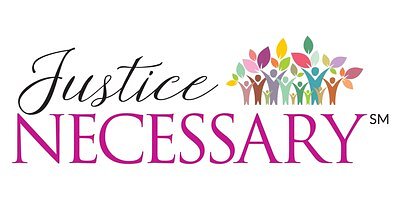
Beyond Food Banks: Colorado Partnership Aims to Restore Dignity with Hygiene Access
A new Colorado initiative tackles a hidden struggle – hygiene poverty – by integrating essential products into food assistance, recognizing that dignity is as vital as nourishment.
Beyond Food Banks: Colorado Partnership Aims to Restore Dignity with Hygiene Access
Denver, CO – As food banks across the nation grapple with increased demand and shrinking resources, a groundbreaking partnership in Colorado is expanding the definition of basic needs. Justice Necessary, a non-profit dedicated to combating hygiene poverty, and Food Bank of the Rockies are launching a pilot program to integrate essential hygiene products into food assistance, acknowledging that dignity is as vital as nourishment.
For years, advocates have pointed to a glaring gap in traditional aid: while food banks efficiently address hunger, they often lack the resources to provide necessities like soap, shampoo, diapers, and menstrual products. This leaves vulnerable populations – particularly women, children, and those experiencing homelessness – facing impossible choices between food and personal care.
“We’ve always known food isn’t enough,” says a representative from Food Bank of the Rockies. “People need to feel clean, safe, and respected. Without access to basic hygiene, it’s incredibly difficult to maintain health, seek employment, or even participate fully in society.”
The new initiative seeks to address this disconnect. Beginning this summer, select food bank distribution sites will begin offering curated hygiene kits alongside traditional food supplies. These kits will be tailored to meet the specific needs of different demographics, including families with infants, menstruating individuals, and those experiencing homelessness.
A Hidden Crisis: The Scope of Hygiene Poverty
The need is significant. Justice Necessary’s 2024 study revealed that 46% of Coloradans experience hygiene poverty, struggling to afford essential products. This number is even higher among specific populations, with 74% of Native American, Indian, or Alaskan Native individuals and 62% of Hispanic/Latina individuals reporting difficulty affording basic hygiene items.
The study also highlighted the profound impact of hygiene poverty on health, education, and employment. “We found a clear link between lack of access to hygiene products and increased rates of illness, school absenteeism, and difficulty maintaining employment,” explains a representative from Justice Necessary. “It’s a cycle of disadvantage that’s often invisible.”
Nationally, the crisis is equally pressing. The National Diaper Bank Network reported that 47% of families struggled to pay for diapers in 2023, a stark increase from previous years. Meanwhile, a growing number of individuals are forced to choose between food and feminine hygiene products, impacting their health and dignity.
Beyond Emergency Aid: A Holistic Approach
What sets this partnership apart is its focus on long-term solutions. While many organizations provide emergency hygiene supplies, Justice Necessary and Food Bank of the Rockies are committed to building a more sustainable system.
“We’re not just handing out soap,” says a representative from Justice Necessary. “We’re working to address the root causes of hygiene poverty and create a culture of dignity and respect.”
This includes advocating for policies that expand access to affordable hygiene products, such as the recent Colorado law requiring schools to provide free menstrual products to students. It also involves raising awareness about the issue and challenging the stigma associated with period poverty and other forms of hygiene insecurity.
Filling the Gap: What’s in the Kits?
The hygiene kits will be carefully curated to meet the diverse needs of those served by the food bank.
- Families with Infants: Diapers, baby wipes, diaper rash cream, baby soap and shampoo.
- Menstruating Individuals: Pads, tampons, menstrual cups, panty liners.
- Individuals Experiencing Homelessness: Soap, shampoo, deodorant, toothbrush, toothpaste, shaving cream, razors, hand sanitizer.
- General Hygiene Kits: Soap, shampoo, conditioner, deodorant, toothbrush, toothpaste, washcloths, hand sanitizer.
The organizations are also partnering with local businesses and community groups to collect donations and assemble the kits.
A Growing Movement: Addressing the Interconnectedness of Needs
The Colorado partnership is part of a growing national movement to recognize the interconnectedness of basic needs. Increasingly, food banks and other aid organizations are expanding their services to include hygiene products, clothing, and other essential items.
“We’re realizing that people can’t thrive on food alone,” says a representative from a national anti-poverty organization. “They need to feel clean, safe, and respected. It’s about restoring dignity and empowering people to live full and productive lives.”
The pilot program in Colorado is expected to serve hundreds of families in its first year. If successful, the organizations hope to expand the program to other communities across the state and beyond.
“This is about more than just providing hygiene products,” says a representative from Food Bank of the Rockies. “It’s about recognizing the inherent dignity of every human being and ensuring that everyone has access to the basic necessities they need to thrive.”
Looking Ahead: Sustainability and Advocacy
The long-term sustainability of the program hinges on continued funding and community support. Justice Necessary and Food Bank of the Rockies are actively seeking donations and grants to ensure they can continue providing hygiene products to those in need. They are also advocating for policies that address the root causes of hygiene poverty, such as increasing access to affordable healthcare and expanding SNAP benefits to include hygiene products.
The partnership serves as a powerful reminder that addressing poverty requires a holistic approach—one that recognizes the interconnectedness of basic needs and prioritizes the dignity of every individual.
